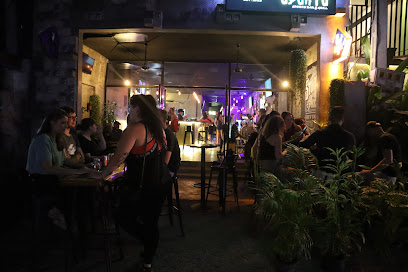
Exploring the Mystique of Prasat Pram: A Hidden Gem in Koh Ker
Discover the ancient beauty of Prasat Pram, a captivating Hindu temple in the serene jungles of Koh Ker, Cambodia's historical treasure.
Prasat Pram, a stunning Hindu temple in Koh Ker, offers tourists a captivating glimpse into Cambodia's ancient history. Nestled in lush jungle, its intricate stone carvings and unique architecture make it a must-visit destination for history enthusiasts and adventure seekers alike. Experience the serenity and beauty of this archaeological marvel as you wander through its enchanting ruins.
A brief summary to Prasat Pram (Koh Ker)
- PGXV+XX7, Phumi Môréal, KH
- Monday 6:30 am-5:30 pm
- Tuesday 6:30 am-5:30 pm
- Wednesday 6:30 am-5:30 pm
- Thursday 6:30 am-5:30 pm
- Friday 6:30 am-5:30 pm
- Saturday 6:30 am-5:30 pm
- Sunday 6:30 am-5:30 pm
Local tips
- Visit early in the morning to avoid crowds and enjoy cooler temperatures.
- Bring plenty of water and wear comfortable shoes for exploring the temple grounds.
- Don't forget your camera; the intricate details of the carvings are a photographer's dream.
- Consider hiring a local guide to gain deeper insights into the historical significance of the temple.
- Respect the sacredness of the site and be mindful of local customs while visiting.
Getting There
-
Car
From Preah Vihear town, head southeast on National Road 64 towards Phumi Môréal. Continue for approximately 45 kilometers until you reach the junction with National Road 6. Turn left onto National Road 6 and drive for about 30 kilometers. Look for signs pointing towards Koh Ker, and follow the road leading to the Prasat Pram site. The entrance will be well-marked as you approach the archaeological area. There may be a small entrance fee, typically around $5, to access the site.
-
Public Transportation
Take a shared taxi or minibus from Preah Vihear town to the nearest larger city, like Siem Reap. Ask the driver to drop you off at the Koh Ker junction. From there, you will need to hire a motorcycle taxi or tuk-tuk to take you the remaining distance to Prasat Pram. The motorcycle taxi should cost around $10-$15 for the trip to the site. Ensure you negotiate the price before starting the journey.
-
Motorcycle Rental
If you are comfortable riding a motorcycle, rent one in Preah Vihear town. Head southeast on National Road 64 towards Phumi Môréal, continuing for approximately 45 kilometers. Then, turn left onto National Road 6 and proceed for about 30 kilometers. Follow the signs for Koh Ker, and you will find Prasat Pram marked along the route. Be cautious of road conditions and traffic, and ensure you have the necessary safety gear. Rental costs are typically around $5-$10 per day.
Discover more about Prasat Pram (Koh Ker)
Iconic landmarks you can’t miss
Banteay Srei Temple
65.1 km
Explore the breathtaking Banteay Srei Temple, a masterpiece of Khmer architecture with intricate carvings and a rich historical legacy.
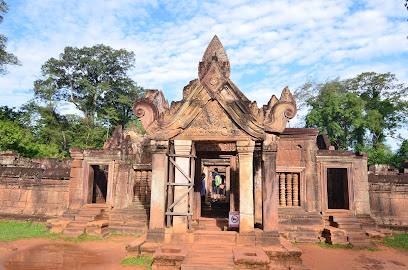
Chuor Phnum Dangrek
67.8 km
Explore the enchanting beauty of Chuor Phnum Dangrek, Cambodia's breathtaking mountain range, rich in biodiversity and cultural heritage.
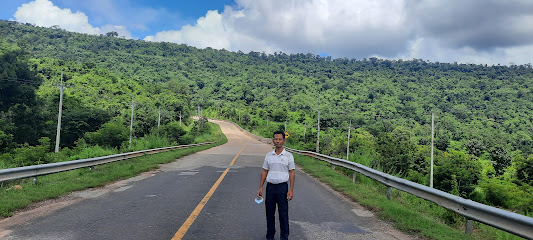
Phnom Bok
68.5 km
Discover the serene beauty and rich heritage of Phnom Bok, a stunning Hindu temple in Siem Reap, Cambodia, surrounded by lush landscapes.
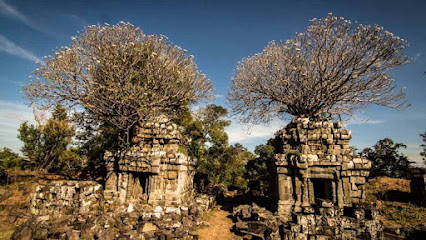
Cambodia Landmine Museum
68.8 km
Explore the Cambodia Landmine Museum, a significant site dedicated to educating visitors about the impact of landmines and the resilience of the Cambodian people.
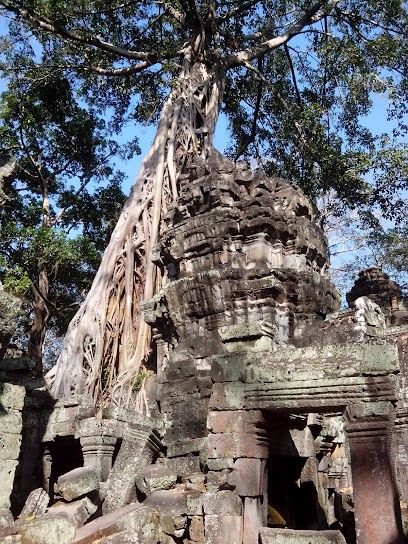
Banteay Srey Butterfly Centre (BBC)
70.6 km
Discover the vibrant world of butterflies at the Banteay Srey Butterfly Centre, a must-visit attraction in the heart of Cambodia's natural beauty.
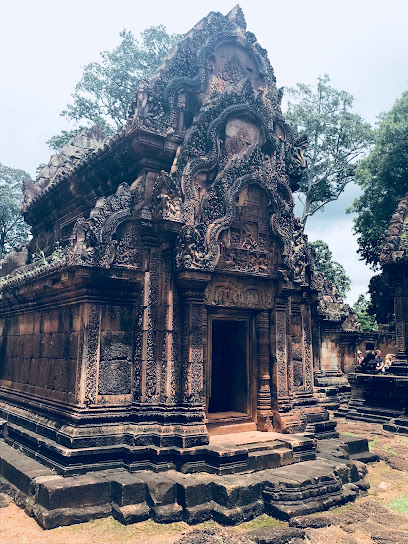
Banteay Samre
72.0 km
Explore Banteay Samre, a serene Hindu temple in Siem Reap, showcasing stunning Khmer architecture and rich cultural heritage amidst lush natural surroundings.
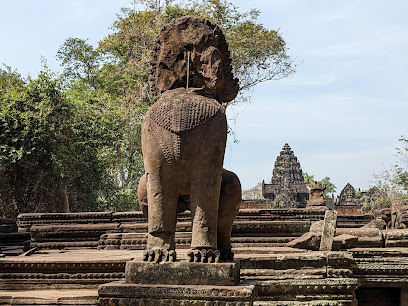
Phnum Preah Vihear
72.6 km
Discover Phnum Preah Vihear, a stunning mountain peak in Cambodia, renowned for its ancient temples and breathtaking views.
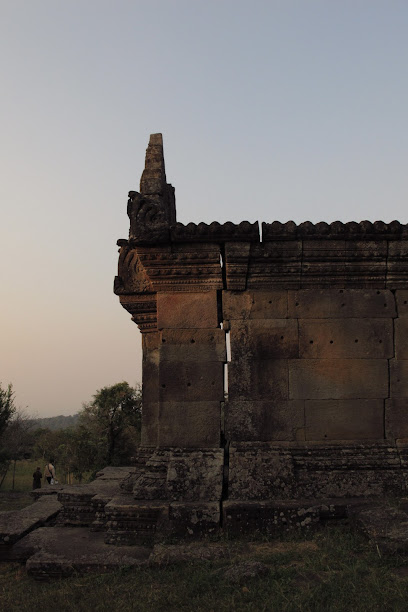
Central Sanctuary
72.7 km
Explore the Central Sanctuary in Cambodia, a historical gem that showcases the rich heritage and architectural beauty of ancient civilizations.
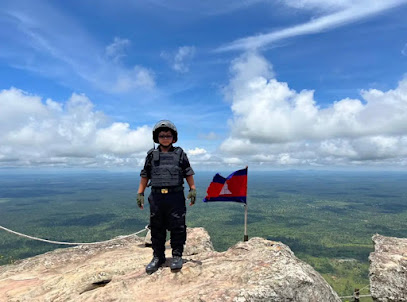
Prasat Preah Vihear
72.7 km
Explore the awe-inspiring Prasat Preah Vihear, a UNESCO World Heritage Site showcasing stunning architecture and breathtaking views in Cambodia.
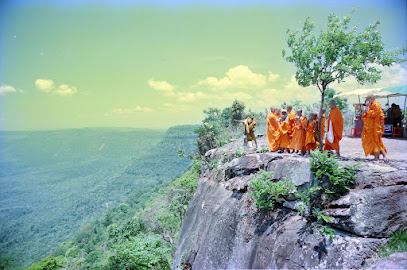
Preah Vihear station
72.8 km
Explore the serene beauty of Preah Vihear Station, a hidden garden oasis in Ta Thav, Cambodia, perfect for relaxation and nature appreciation.
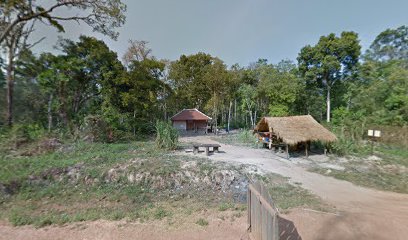
Kampong Kdei Bridge
72.8 km
Explore the ancient charm of Kampong Kdei Bridge, an architectural marvel that reflects Cambodia's rich history and offers stunning views of the surrounding landscape.
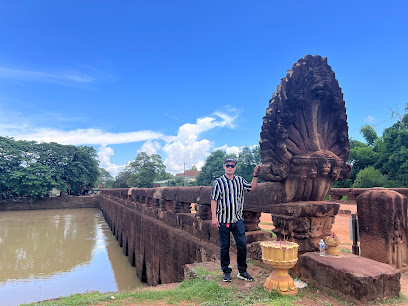
Prasat Preah Vihear Hall
72.8 km
Explore the historical wonders of Prasat Preah Vihear Hall, a UNESCO World Heritage site showcasing ancient Khmer architecture and breathtaking views.
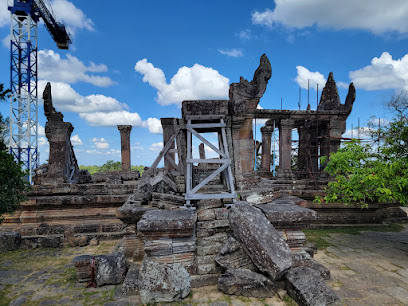
Prasat Preah Vihear Gopura 3
72.9 km
Explore the majestic Prasat Preah Vihear Gopura 3, a historical landmark showcasing the rich heritage and architectural brilliance of ancient Khmer civilization.
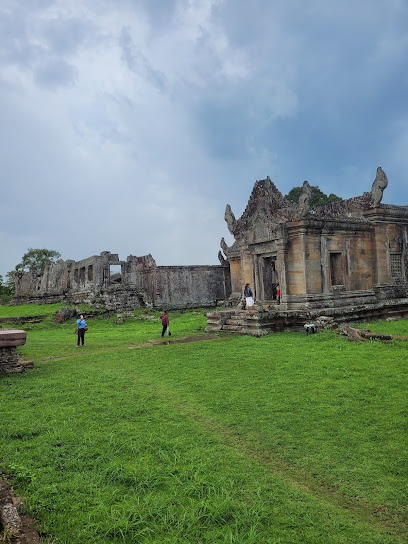
Prasat Preah Vihear Gopura 4
73.1 km
Discover the ancient beauty of Prasat Preah Vihear Gopura 4, a UNESCO World Heritage Site showcasing stunning Khmer architecture and breathtaking views.
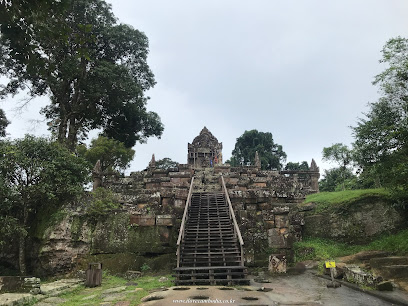
Bot Uddom Guesthouse
73.2 km
Discover the warmth and hospitality of Bot Uddom Guesthouse in Anlong Veng, where Cambodian culture and comfort come together for a memorable stay.
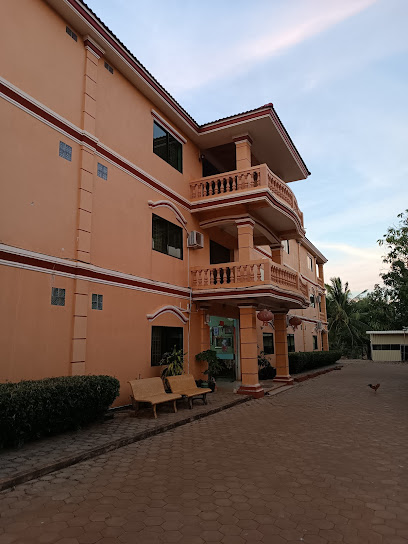
Unmissable attractions to see
Prasat Kok Krong
1.9 km
Discover the enchanting Prasat Kok Krong, a divine Hindu temple in Kaoh Ker, where intricate architecture meets serene spirituality in a breathtaking setting.
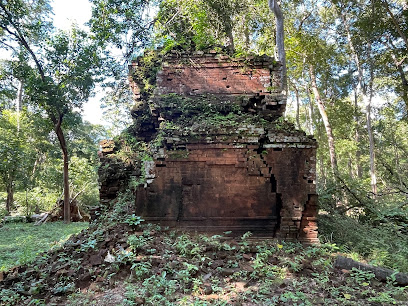
Prasat Damrei Kandoeng
2.2 km
Explore the ancient beauty of Prasat Damrei Kandoeng, a hidden gem in Cambodia's archaeological landscape that showcases stunning Khmer architecture.

Prasat Chrap
2.7 km
Explore Prasat Chrap, an ancient Hindu temple in Kaoh Ker, and experience the spiritual essence of the Khmer Empire amid stunning archaeological beauty.
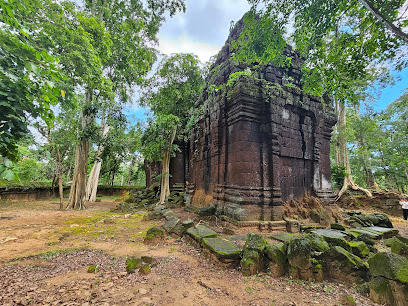
Prasat Sralau
3.8 km
Explore the serene beauty and rich history of Prasat Sralau, a hidden gem of Khmer heritage in the heart of Cambodia's Kaoh Ker.
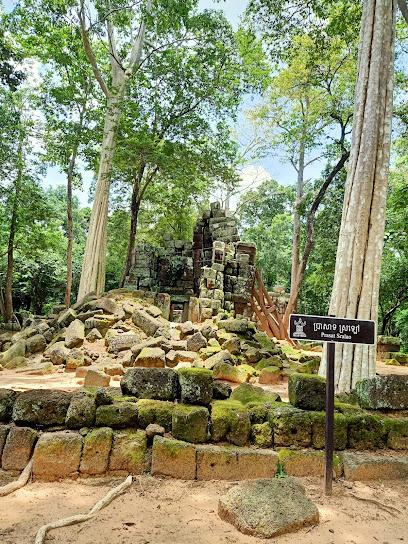
Koh Ker Temple
3.8 km
Explore the majestic Koh Ker Temple, a hidden gem of ancient Khmer architecture surrounded by lush jungle, perfect for history enthusiasts and adventurers alike.
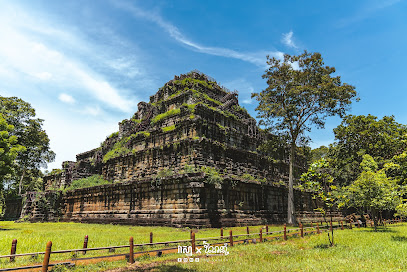
Prasat Roum
3.8 km
Discover the tranquil beauty of Prasat Roum, a captivating Hindu temple steeped in Cambodia's rich cultural heritage and spiritual significance.
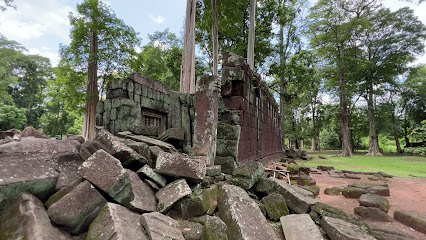
Prasat Srot
3.8 km
Explore Prasat Srot, a serene Hindu temple in Kaoh Ker, Cambodia, showcasing exquisite ancient Khmer architecture and rich cultural heritage.
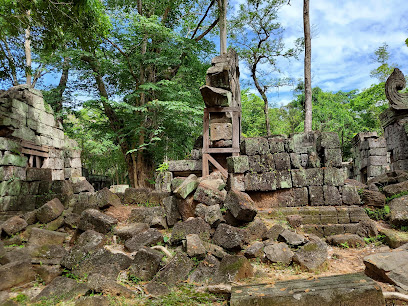
hom work
15.0 km
Discover tranquility and natural beauty at Hom Work Garden, a serene oasis in Cambodia perfect for relaxation and rejuvenation.

Prasat Pram
19.4 km
Explore the serene Prasat Pram, a hidden Hindu temple gem in Cambodia, rich in history and stunning architecture amidst lush landscapes.
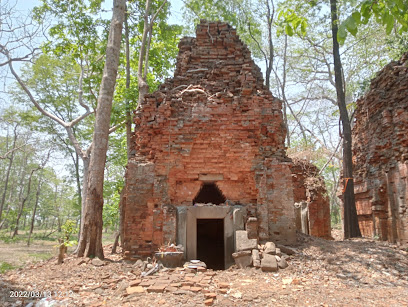
បឹងក្បាលខ្លា
28.5 km
Explore the monumental Angkor Wat, a UNESCO World Heritage site and the largest religious monument in the world, rich in history and architectural beauty.

Second campsite
34.1 km
Discover the beauty of nature at Second Campsite, a stunning tourist attraction in Cambodia perfect for outdoor enthusiasts and nature lovers.
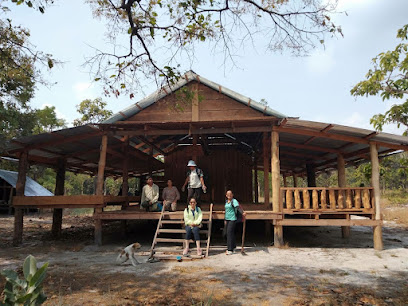
Thma Hout rock
34.1 km
Discover the unique umbrella-shaped Thma Hout Rock, a stunning natural attraction in Cambodia perfect for nature lovers and adventurers.
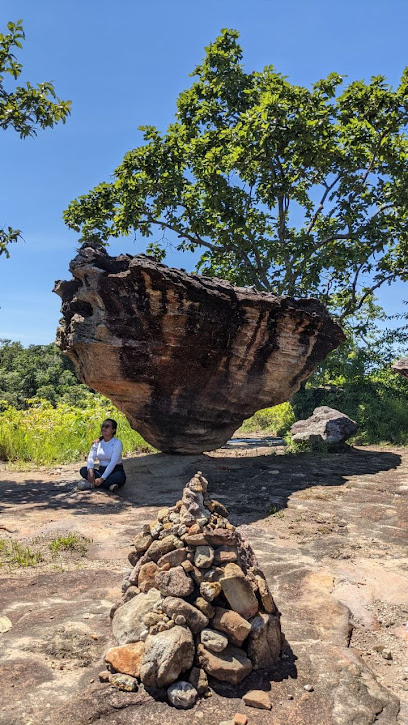
Kandol Sor Waterfall - ទឹកធ្លាក់ កណ្តុរស
36.3 km
Experience the natural beauty of Kandol Sor Waterfall in Cambodia, a hidden gem perfect for hiking, relaxation, and stunning photography.
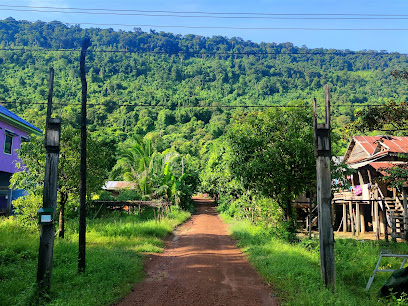
Poy Kbal khla
36.7 km
Explore the serene beauty and rich history of Poy Kbal Khla, a hidden gem in Krong Preah Vihear, Cambodia, perfect for every traveler.
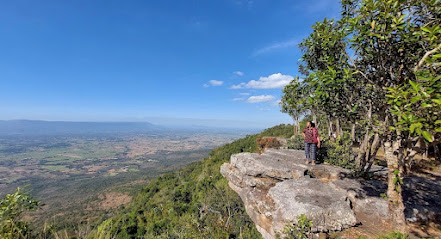
ភ្នំ ត្បែង (Mount Tbaeng)
38.9 km
Immerse yourself in the breathtaking landscapes and rich biodiversity of Mount Tbaeng, a must-visit national forest in Krong Preah Vihear, Cambodia.

Essential places to dine
Cambodian Restaurants
3.8 km
Explore authentic Cambodian cuisine at local restaurants offering traditional dishes and unique flavors that reflect Cambodia's rich culinary heritage.
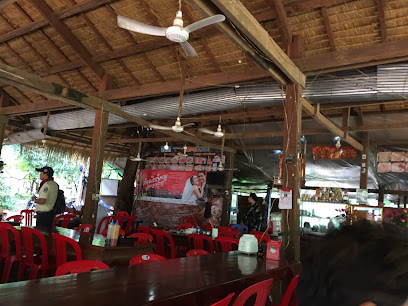
Vicha Café
5.0 km
Experience the authentic flavors of Phumi Môréal at Vicha Café, your go-to spot for delicious breakfasts in Cambodia.
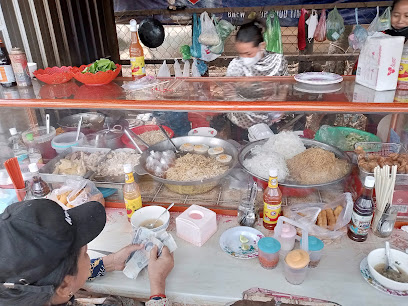
អាហារដ្ឋានខ្ទមឫស្សី
19.5 km
Experience authentic Cambodian flavors at អាហារដ្ឋានខ្ទមឫស្សី in Krong Preah Vihear - A culinary journey awaits!
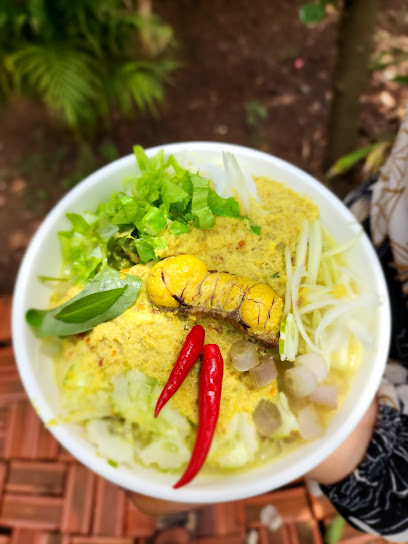
អាហារដ្ឋានគិរីជលសា - Kiry Chulsa Restaurant
43.9 km
Experience the essence of Cambodian gastronomy at Kiry Chulsa Restaurant in Krong Preah Vihear, where every dish is freshly prepared just for you.
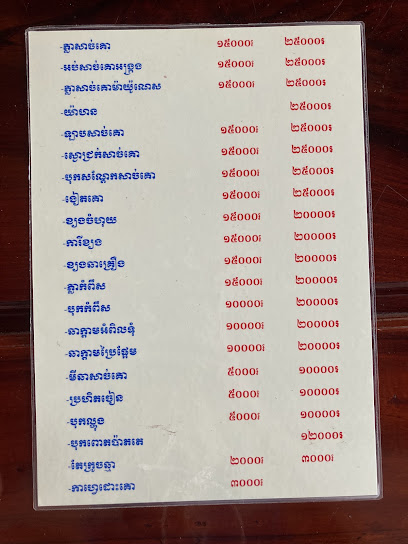
Luxury mount restaurant
45.9 km
Experience gourmet dining with breathtaking mountain views at Luxury Mount Restaurant in Krong Preah Vihear.

ផ្ទះបាំងកក Bangkok House Preahvihear
46.5 km
Experience authentic Asian cuisine at Bangkok House Preahvihear, where traditional flavors meet modern dining in Krong Preah Vihear.
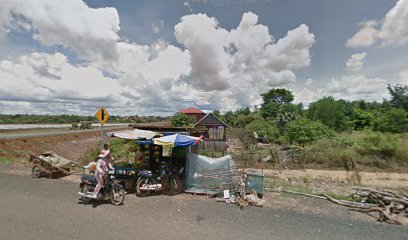
Preah Khan Restaurant
46.5 km
Experience authentic Cambodian cuisine at Preah Khan Restaurant in Ta Sêng – where every dish tells a story.
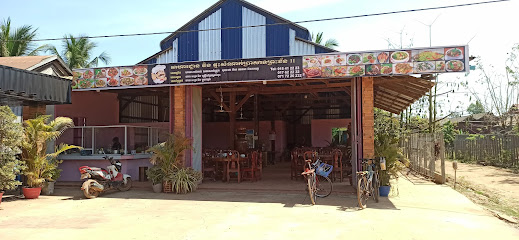
ជំនោរធម្មជាតិ99
46.5 km
Experience authentic Cambodian cuisine at ជំនោរធម្មជាតិ99 - where every dish tells a story.
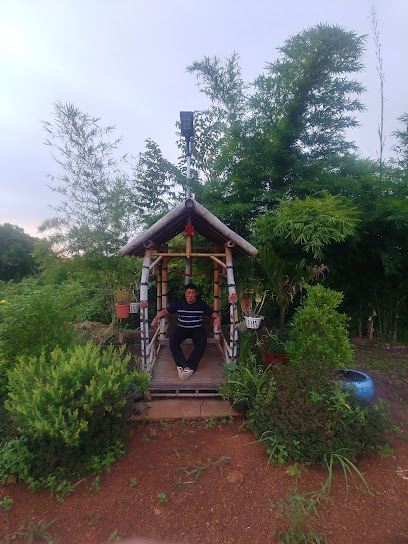
ខ្ចុះម្លប់ស្បូវស្រះឈូក
46.6 km
Experience authentic Khmer cuisine at this family-friendly gem in Krong Preah Vihear, perfect for creating lasting memories over delicious meals.
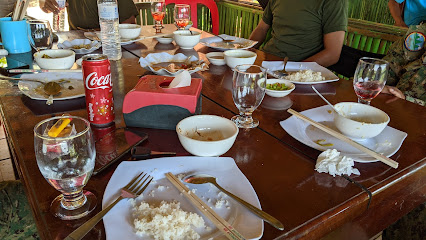
Restaurant Preah Vihear Derm Mean
46.7 km
Discover authentic Cambodian flavors at Restaurant Preah Vihear Derm Mean in Krong Preah Vihear—where every meal is a cultural journey.
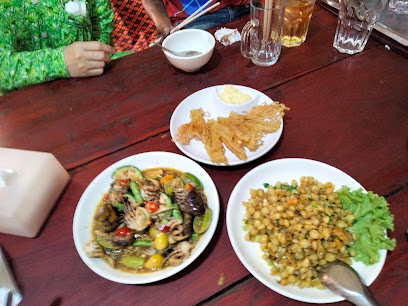
សែនសប្បាយ៩៩៩៩ Restaurant Beer
46.8 km
Discover authentic Khmer flavors at សែនសប្បាយ9999 Restaurant Beer in Krong Preah Vihear - where delicious cuisine meets vibrant ambiance.
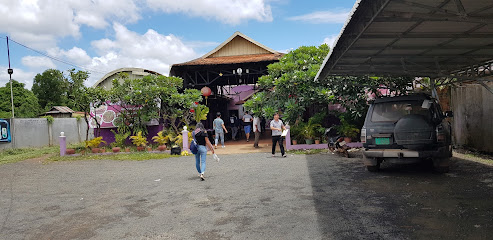
ហឹរឆ្ងាញ់
47.1 km
Experience fresh seafood delights at Hir Chhnang in Krong Preah Vihear – where every dish tells a story of flavor and tradition.

Ly Huot Restaurant
47.1 km
Experience authentic Cambodian flavors at Ly Huot Restaurant in Krong Preah Vihear - where tradition meets taste.
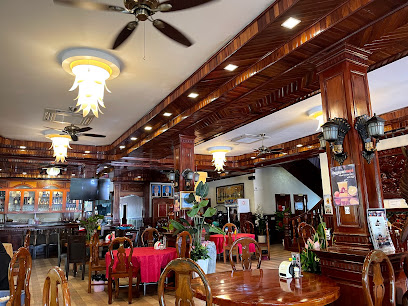
លាន ចិន្តា គុយទាវទូក ព្រះវិហា
47.2 km
Savor authentic Cambodian flavors at Chintha Kuyteav Tuk – a must-visit restaurant in Krong Preah Vihear offering delicious kuyteav and more.
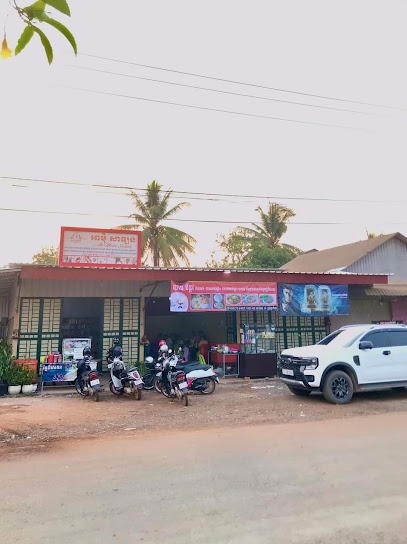
ផ្ទះទាកាញ់៦៦៦៦ Restaurant and beer Gardent
47.2 km
Savor authentic Khmer dishes at ផ្ទះទាកាញ់6666 Restaurant & Beer Garden - A culinary gem in Krong Preah Vihear.
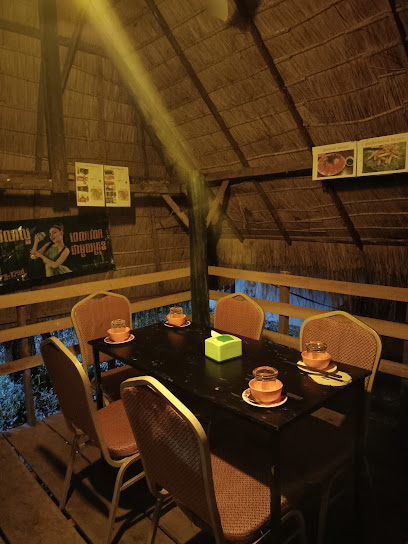
Markets, malls and hidden boutiques
BeTreed Adventures
33.6 km
Discover tranquility and adventure at BeTreed Adventures, a unique hotel nestled in the heart of TaBos Village, Cambodia.
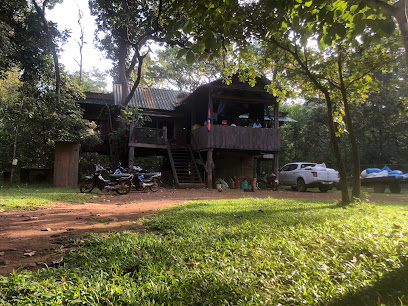
Monika coffee
43.4 km
Explore the rich flavors of Cambodia at Monika Coffee, a serene coffee haven in Preah Vihear province, perfect for relaxation and cultural immersion.

ហាងផ្លែឈើស្រីឡា
43.4 km
Discover the vibrant flavors of Cambodia at Sreila Fruit Store, where fresh, local fruits await every traveler.

ពោធិ៍
43.4 km
Discover the diverse shopping and dining scene at the vibrant shopping mall of ពោធិ៍ in Tmat Paeuy, a must-visit destination for tourists.

ភារិទ្ធហាងលក់ទូរស័ព្ទដៃ
43.4 km
Discover the latest mobile technology and accessories at the Cell Phone Store, your go-to destination for staying connected while traveling.

Lucius Charm
47.2 km
Lucius Charm offers a diverse range of cosmetics and beauty products in Krong Preah Vihear, perfect for enhancing your beauty routine or finding the ideal gift.
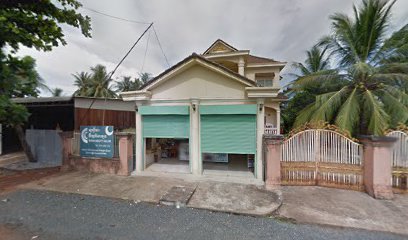
Branch of Metfone Preah Vihear
47.3 km
Experience local culture and modern shopping at Metfone Preah Vihear, a vibrant landmark in the heart of Krong Preah Vihear.
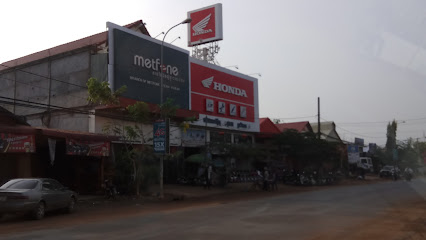
Weaves of Cambodia
47.9 km
Explore the rich tapestry of Cambodian culture at Weaves of Cambodia, a handicraft museum celebrating traditional weaving and artistry.
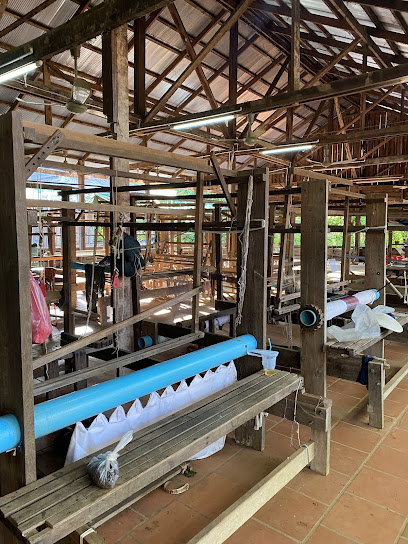
ផ្សារ ហេងភា ស្រអែម
58.0 km
Discover the flavors and crafts of Cambodia at Heng Phea Market in Sra'aem, where local culture comes alive through vibrant stalls and delicious street food.
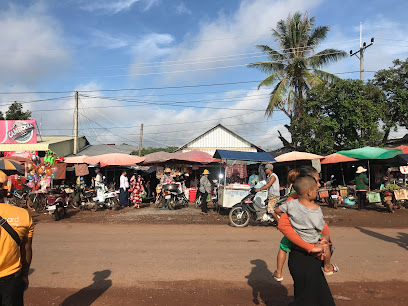
Preah Vihear Market.
58.0 km
Discover the vibrant Preah Vihear Market, a cultural gem in Sra'aem offering fresh produce, street food, and unique local crafts.
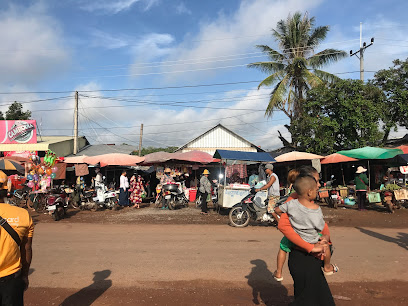
Preah Vihear Boutique Hotel
58.0 km
Discover the perfect blend of comfort, culture, and local charm at Preah Vihear Boutique Hotel in Sra'aem, Cambodia.

លោកគ្រូទិញគ្រាប់ស្វាយចន្ទី/លក់ជីកសិកម្ម
70.7 km
Discover the heart of Anlong Veng through its vibrant agricultural store, offering fresh produce and local culture.
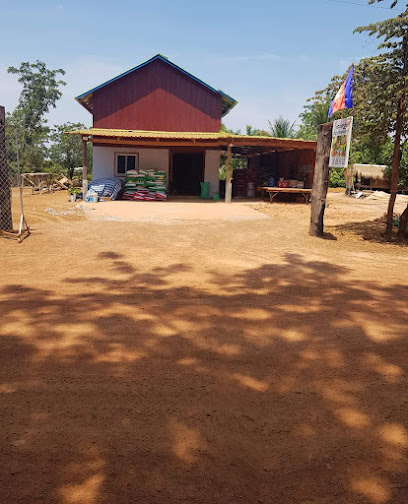
Sang Vireak Grocery Store
73.1 km
Explore the vibrant flavors of Asia at Sang Vireak Grocery Store, a culinary treasure in Anlong Veng with authentic ingredients and local specialties.
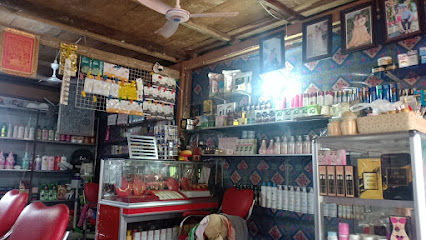
ភក្ដីហាងលក់ទូរសព្ទដៃទំនេីប-PheakdeyPhoneshop
73.2 km
Explore Anlong Veng with confidence from Pheakdey Phoneshop, your trusted source for mobile devices and connectivity solutions.
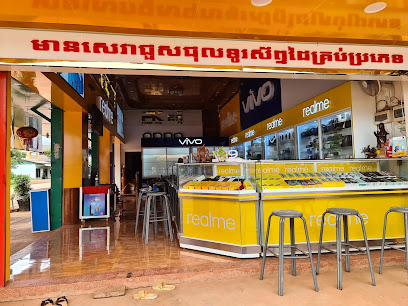
សុជាតា លក់ម៉ុងភួយ Socheata Linen
73.2 km
Explore Cambodian culture at Socheata Linen in Anlong Veng—your go-to spot for authentic linen products and local craftsmanship.
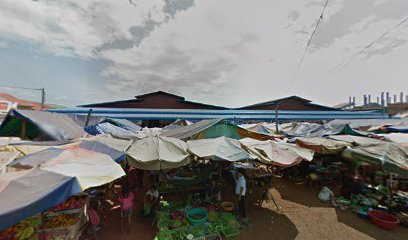
Essential bars & hidden hideouts
ភោជនីយដ្ឋាន ធម្មជាតិ
18.4 km
Experience the vibrant nightlife and local flavors at ភោជនីយដ្ឋាន ធម្មជាតិ, Kuleaen's must-visit bar for travelers seeking relaxation and socialization.
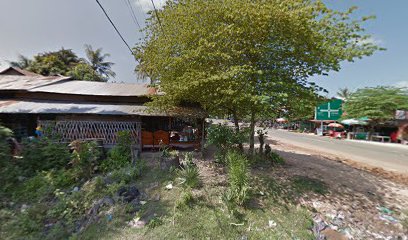
Chey Sovannary Restaurant
29.5 km
Discover the heart of Cambodian cuisine at Chey Sovannary Restaurant, where authentic flavors and warm hospitality await.
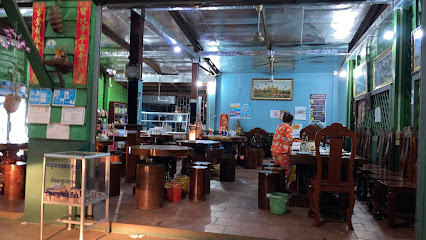
Tra Caf'e Food & Drink
41.4 km
Discover authentic Cambodian cuisine at Tra Caf'e Food & Drink in Krong Preah Vihear, where each meal is a taste of local tradition.
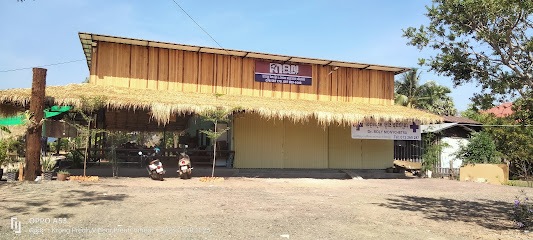
ដាយម៉ែនញូវ
45.1 km
Experience the lively nightlife of Krong Preah Vihear at the vibrant bar, ដាយម៉ែនញូវ, where culture and entertainment meet.

ផ្ទះលំហែទឹកធ្លាក់ បេងកោង Beng Kaong Resort
46.7 km
Experience the serene beauty of Beng Kaong Resort, a tranquil oasis in Krong Preah Vihear, featuring stunning landscapes and refreshing waterfalls.
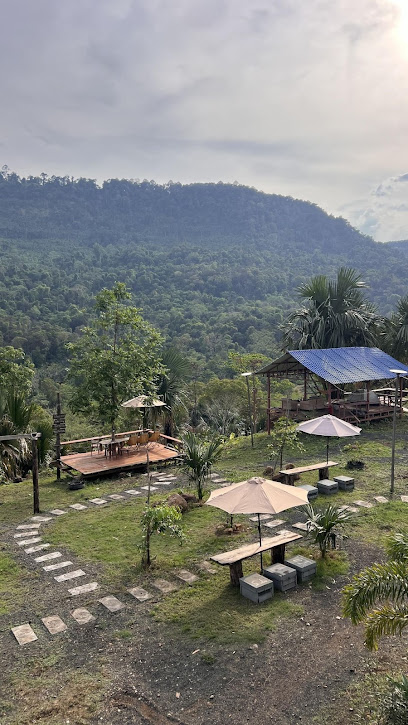
Amazon Pub
46.7 km
Experience the lively essence of Krong Preah Vihear at Amazon Pub, where local flavors and vibrant ambiance create unforgettable moments.
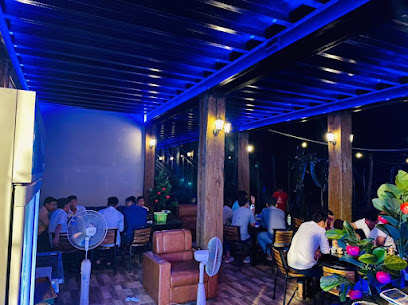
KTV ពន្លឺផ្កាយព្រឹក2
47.3 km
Experience the vibrant fusion of delicious Cambodian cuisine and lively karaoke at KTV ពន្លឺផ្កាយព្រឹក2 in Krong Preah Vihear.
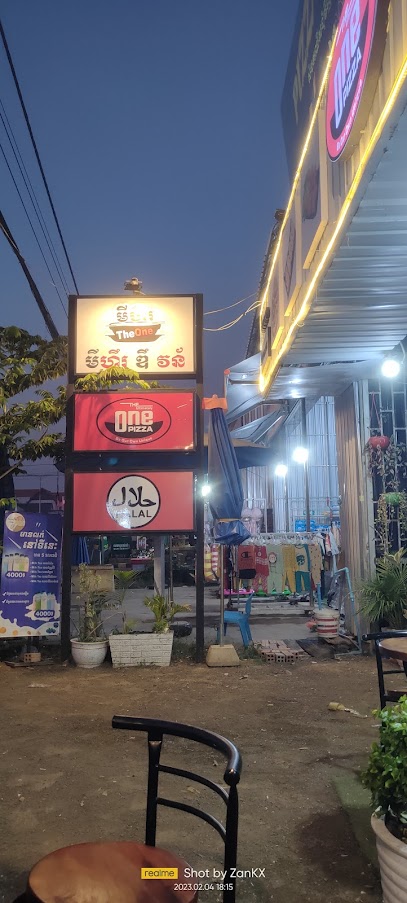
Thnot Cafe & Bakery - ត្នោតកាហ្វេ
47.3 km
Experience the perfect blend of artisanal coffee and homemade pastries at Thnot Cafe & Bakery, a must-visit destination in Krong Preah Vihear.
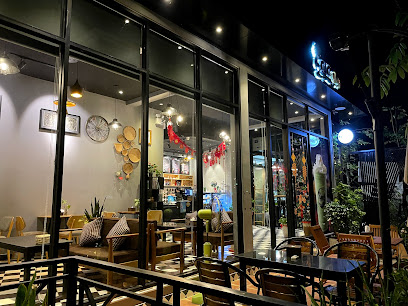
H-Cafe and Cocktail
47.6 km
Discover the lively atmosphere and refreshing cocktails at H-Cafe and Cocktail in Krong Preah Vihear, a must-visit bar for tourists.
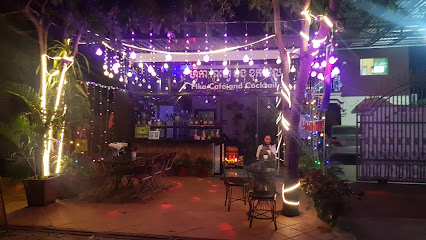
បេន
47.8 km
Experience the vibrant nightlife of Krong Preah Vihear at Bên Beer Hall, where local brews and delicious snacks create unforgettable memories.
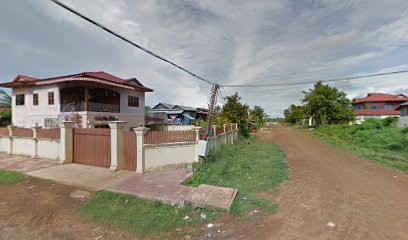
ផ្កាយមាស បងអើយ
57.1 km
Discover the lively atmosphere of Star Gold Karaoke Bar in Sra'aem, where unforgettable nights of music, laughter, and local culture await you.

Da Cheer
57.7 km
Discover the vibrant nightlife of Da Cheer in Sra'aem, Cambodia, where local flavors meet a lively atmosphere for an unforgettable experience.
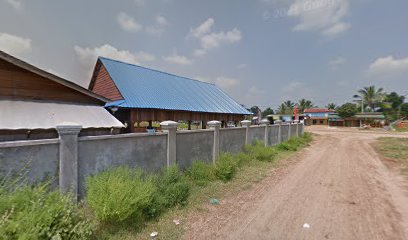
សួនច្បារផ្កាឈូករដ្ឋ
60.1 km
Explore the stunning Orchid Garden in Sra'aem, a tranquil oasis filled with vibrant blooms and lush greenery, perfect for nature lovers and photographers.

Elephant Bar
85.6 km
Indulge in handcrafted cocktails and a vibrant atmosphere at Elephant Bar, the ultimate cocktail destination in Siem Reap.
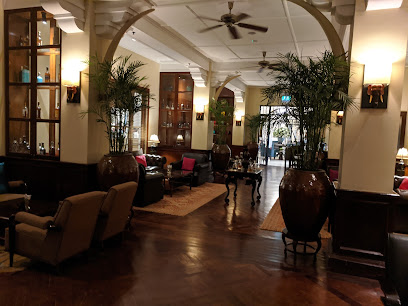
UBUNTU Sports Bar & Grill
86.1 km
Experience the vibrant atmosphere of UBUNTU Sports Bar & Grill in Siem Reap, where delicious food, refreshing drinks, and local culture come together.
